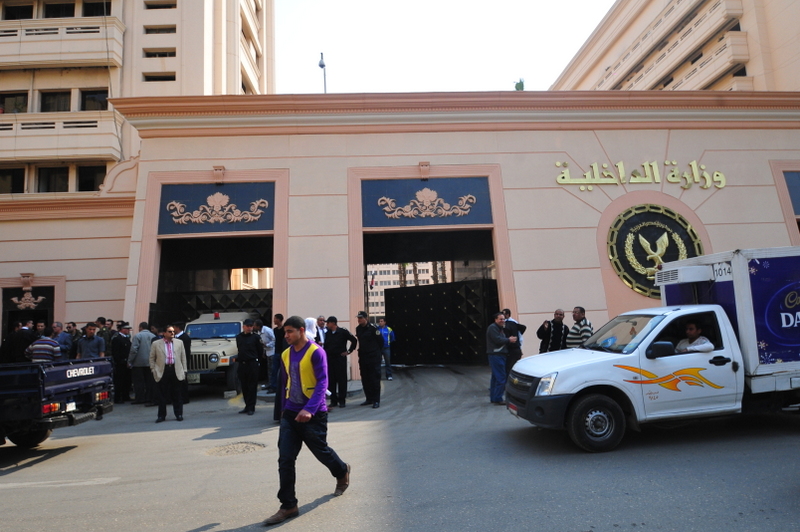CAIRO: Rights organizations condemned Saturday the torture of prisoners in El-Wadi El-Gedid prison wards 8 and 9 during what was described by the interior ministry as a “prison inspection.”
"Tens of prisoners who were tried in military courts were badly injured. Among them is protester Abol Maaty Ahmed Abo Arab whose leg was broken," according to a statement by the Cairo Center of Human Rights Studies (CCHRS) released Saturday.
"Abo Arab told his father that he asked the prison administration to be sent to hospital, but the administration refused, while another prisoner is said to be seriously injured," the statement added.
The statement also included the testimony of Mohamed El-Beheiry, brother of protester Amr El-Beheiry, sentenced to five years in El-Wadi El-Gedid prison after military police violently dispersed a protest outside the cabinet office on Feb. 25.
"In a visit to his brother on July 25, Mohamed saw Amr standing with four others in the prison’s front yard beside two injured prisoners carried on a stretcher. One of them was not moving and foam was coming out of his mouth while the other was screaming in pain."
Mohamed added that the prison warden ordered to transfer them in the police truck, but a police officer rejected and asked for an ambulance saying that "I will not transfer a dead prisoner," but the warden insisted the two prisoners be transferred in the police truck, the statement recounted.
"We condemn the continuation of oppressive behaviors, and we urge the Ministry of Interior and the ruling military council to immediately stop violence against prisoners, and we request an investigation in these incidents and to hold the Ministry of Interior responsible for the safety of the prisoners," the statement concluded.
Meanwhile, Alexandria Military Court adjourned the trial of 13 Alexandria protesters to Aug. 8 for the final verdict.
It was a rare incident of violence in two weeks of largely peaceful protests in the Mediterranean city of Alexandria, Cairo and the Suez following a court decision to free on bail seven policemen accused of killing protesters during the uprising that overthrew president Hosni Mubarak in February.
Witnesses said the clash in Alexandria erupted after hundreds of protesters blocking the coastal road near the army’s northern command headquarters refused to leave the area. Police fired shots in the air and charged at demonstrators who responded by hurling stones at them.
The military council, in a statement on its Facebook page, denied authorities used force against demonstrators anywhere in Egypt and accused the April 6 Youth Movement of trying to drive a wedge between the armed forces and the people.
The military court also further adjourned the trial of Mohamed Gad El-Rab Sayed, known as “Sambo,” to Aug. 6 to listen to testimonies of eyewitnesses.
Sambo was involved in the clashes with police forces last June in Tahrir Square, and was arrested from his home in El-Sharabiya after a photo of him holding a gun was circulated on social networking websites.
In a statement released by the Egyptian Center for Social and Economic Rights (ECSER), lawyer Khalid Ali confirmed that Sayed did not deny holding the gun, but said he was not using it to attack police officers, but rather to hand it over to one of the workers in Omar Makram Mosque.
The center filed at the Administrative Court to appeal against the trial of Sayed in a military court. The lawsuit also accused the military prison warden and his associates of torturing Sayed.
The SCAF confirmed in its 68th statement released July 16 that military trials are only for those accused of any acts of thuggery accompanied with the use of guns or knives, rape, and attacking security officers on duty.
